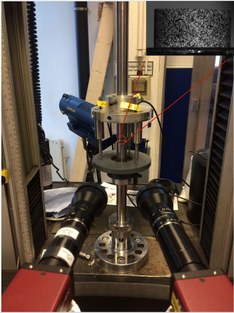Smart, Green & Integrated Transport - EXTREME Dynamic Loading
H2020 SC4 Transport


Technological leadership and innovation is becoming the major competitive differentiator, most notably in terms of costs, and environmental performance. The market demands shorter cycles of new technology integration and, on the other hand, competitors enter the market with aggressive prices.
It is forecasted that in 2050, innovative products and services demanded by the market will be based on state of the art design, manufacturing and certification processes with a significant reduction of the environmental impact. Recent studies have shown that the development and deployment of new structural technologies will have the greatest impact in the reduction of weight and operational costs compared to other technologies. Against this background, composite materials technology is of fundamental importance to the current and future aircraft structures where high specific properties and integration of multiple functionalities are essential to improve weight, fuel efficiency, reduce CO2 emissions, and certification costs. The vulnerability of composite structures to localized, dynamic, sudden, and unexpected loads, may result in unpredictable complex localized damage and a loss of post-impact residual strength.
The aim of the EXTREME project is to develop novel material characterization methods and in-situ measurement techniques, material models and simulation methods for the design and manufacture aerospace composite structures under EXTREME dynamic loadings, leading to a significant reduction of weight, design and certification costs.
Objectives
These are the objectives of EXTREME
• Improving material characterization techniques which allow for the development of new and improved material models, and for damage assessment during and after extreme dynamic events.
• Introducing new smart impact sensing concepts and devices under extreme dynamic loading.
• Supporting the design and certification of aeronautical structures by providing advanced integrated experimental and numerical procedures and guidelines.
• Providing novel and more accurate multiscale and multilevel simulation tools.
Role of Ghent University
Ghent University is responsible of the dynamic characterization testing of the novel composite and polymeric materials developed within EXTREME project. Ghent University will design a state of the art high speed optical measurement technique, which will be used for accurate testing of EXTRME project materials. Ghent University also supports the modelling and simulation activities within the project.
Contact
Prof. Patricia Verleysen
Department of Electrical Energy, Metals, Mechanical Construction and Systems EEMMeCS, DyMaLab Research Group
Phone number: +32-(0)9-331 04 30
E-mail: Patricia.Verleysen@UGent.be